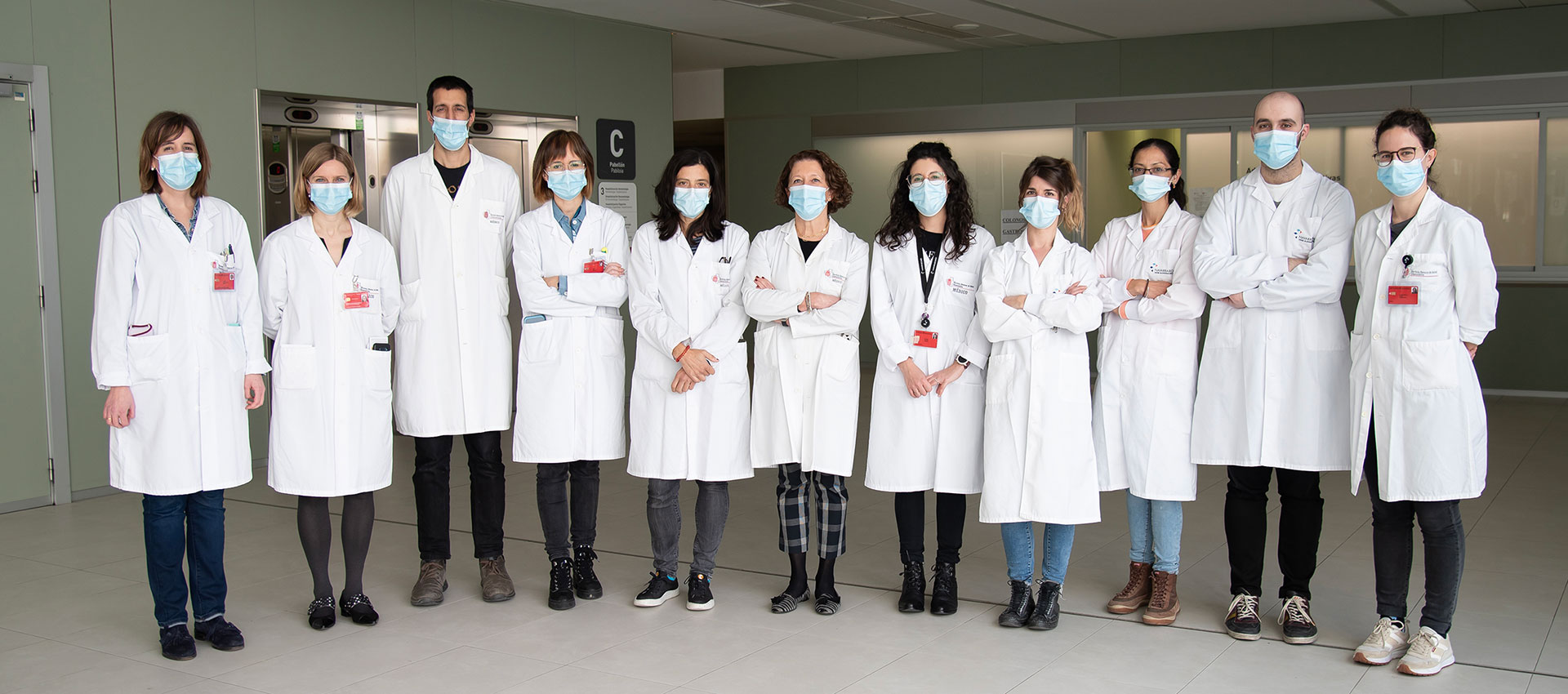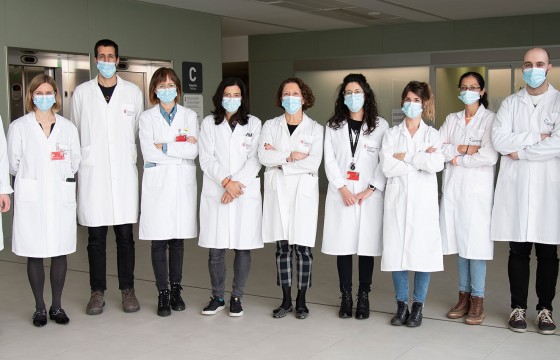
Researchers at the HUN lead a study funded by the Instituto de Salud Carlos III concerning gastrointestinal cancer in the young population
- The project, which also involves researchers from Navarrabiomed and IdiSNA, will be carried out in collaboration with hospitals from a further three autonomous communities.
Researchers from the Hospital Universitario de Navarra (HUN) will coordinate a transversal, multicentre study of early-onset gastrointestinal cancer, considered to be that diagnosed in young patients (less than 50 years of age), in whom the incidence of this type of cancer has increased alarmingly over the past few decades.
Gastrointestinal cancer included, amongst others, colorectal, gastric and pancreatic tumours, which in Spain are the second, fourth and seventh leading causes of cancer-related death, respectively. In Navarra, colorectal cancer was the second most common tumour last year in both males and females, according to data released this week by the Cancer registry of the Institute for Public and Occupational Health of Navarra (ISPLN) on the world day for that disease, which is held next Sunday (4th February).
The project has been funded via the IdiSNA as part of the R&D&i 2023 call for proposals from the Instituto de Salud Carlos III aimed at healthcare research projects and is headed by the researcher Maria Alsina, a specialist in the Medical Oncology department at the HUN and head of the Translational Medical Oncology Unit at Navarrabiomed, where she is funded by the intensification program set up by the Fundación “la Caixa”, and member of the Oncobiona group at IdiSNA.
Researchers from Navarrabiomed and IdiSNA are also participating in the study, which is carried out in cooperation with the different departments at the HUN involved in the management of gastrointestinal cancer, namely Anatomical Pathology, Surgery, Digestive, Endocrinology and Nutrition, Radiation Oncology and Radiology. Three healthcare centres from neighbouring autonomous communities, namely the Hospital Universitario Donostia, Hospital Miguel Servet (Zaragoza) and Hospital San Pedro (Logroño), are also collaborating with the study.
The main objective of the study is to identify the differentiating characteristics of early-onset gastrointestinal cancer in comparison with the later-onset type, both overall, combining the three types of tumours, and for each one separately. To that end, a global approach that includes parameters concerning both the patient’s environment and the disease itself, will be applied. Thus, demographic and clinical variables and others related to their lifestyle, as well as histopathological data for the tumour, will be collected for each patient included in the study.
Sample of 240 patients in a limited geographical setting
It is expected that up to 240 patients (80 younger than 50 years and 160 who have developed this disease at an older age) will participate in the study. The geographical setting for the sample is the north of Spain, therefore the collaboration of the aforementioned hospitals is required. The heads of the research consider that the availability of real-life data for patients diagnosed in a limited setting may help to better understand this type of cancer in our environment and allow prevention strategies to be developed, especially as regards healthy lifestyle habits. In this sense, it should be noted that the majority of cases of early-onset gastrointestinal cancer occur due to environmental, lifestyle and behavioural, nutritional and biological factors rather than being hereditary.
In addition to the preventive approach, a more in-depth understanding of the onset of tumours in young patients may also help the diagnostic and therapeutic approach in this population group. The availability of data that allow an early diagnosis will increase the probability of effective curative treatments and reduce the impact of the disease on the life of these patients (educational or work activities, responsibilities for children or family members) and increase their potential longevity.
In addition, young patients with digestive tumours face unique challenges and needs, such as possible effects on their body image after aggressive surgery, or potential long-term side-effects of chemo- and radiotherapy treatments on their cardiovascular, sexual and reproductive health, in addition to the possible influence on the onset of new neoplasms.


